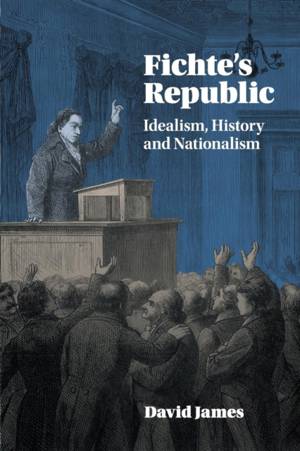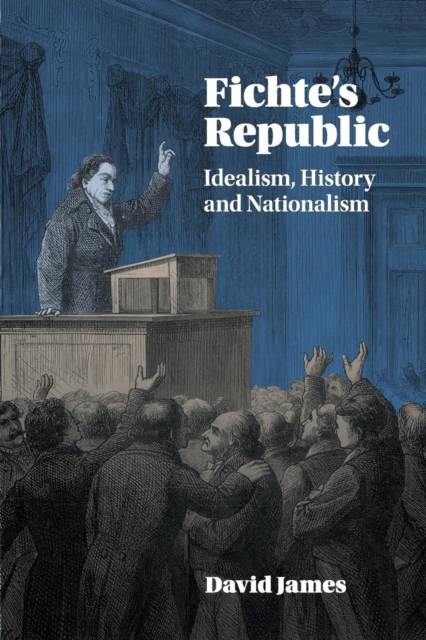
Door een staking bij bpost kan je online bestelling op dit moment iets langer onderweg zijn dan voorzien. Dringend iets nodig? Onze winkels ontvangen jou met open armen!
- Afhalen na 1 uur in een winkel met voorraad
- Gratis thuislevering in België vanaf € 30
- Ruim aanbod met 7 miljoen producten
Door een staking bij bpost kan je online bestelling op dit moment iets langer onderweg zijn dan voorzien. Dringend iets nodig? Onze winkels ontvangen jou met open armen!
- Afhalen na 1 uur in een winkel met voorraad
- Gratis thuislevering in België vanaf € 30
- Ruim aanbod met 7 miljoen producten
Zoeken
€ 60,95
+ 121 punten
Uitvoering
Omschrijving
The Addresses to the German Nation (1808) is one of Fichte's best-known works. It is also his most controversial work because of its nationalist elements. In this book, David James places this text and its nationalism within the context provided by Fichte's philosophical, educational and moral project of creating a community governed by pure practical reason, in which his own foundational philosophical science or Wissenschaftslehre could achieve general recognition. Rather than marking a break in Fichte's philosophy, the Addresses to the German Nation and some lesser-known texts from the same period are shown to develop themes already present in his earlier writings. The themes discussed include the opposition between idealism and dogmatism, the role of Fichte's 'popular' lectures and writings in leading individuals to the standpoint of idealism, the view of history demanded by idealism and the role of the state in history.
Specificaties
Betrokkenen
- Auteur(s):
- Uitgeverij:
Inhoud
- Aantal bladzijden:
- 238
- Taal:
- Engels
Eigenschappen
- Productcode (EAN):
- 9781107527829
- Verschijningsdatum:
- 15/03/2018
- Uitvoering:
- Paperback
- Formaat:
- Trade paperback (VS)
- Afmetingen:
- 152 mm x 229 mm
- Gewicht:
- 326 g

Alleen bij Standaard Boekhandel
+ 121 punten op je klantenkaart van Standaard Boekhandel
Beoordelingen
We publiceren alleen reviews die voldoen aan de voorwaarden voor reviews. Bekijk onze voorwaarden voor reviews.











